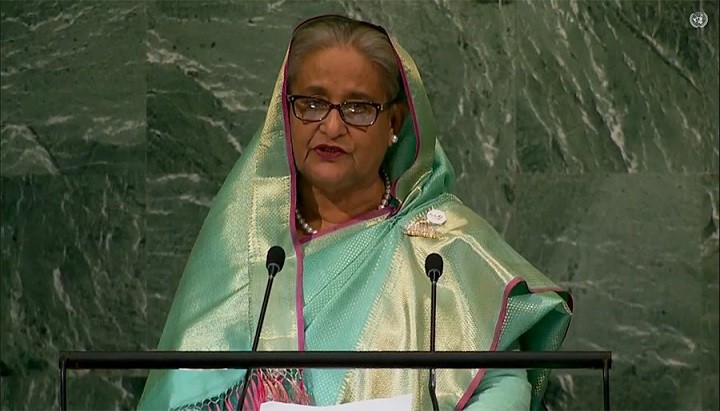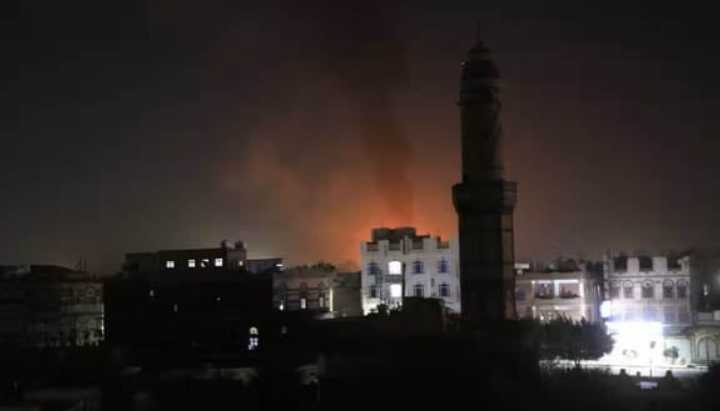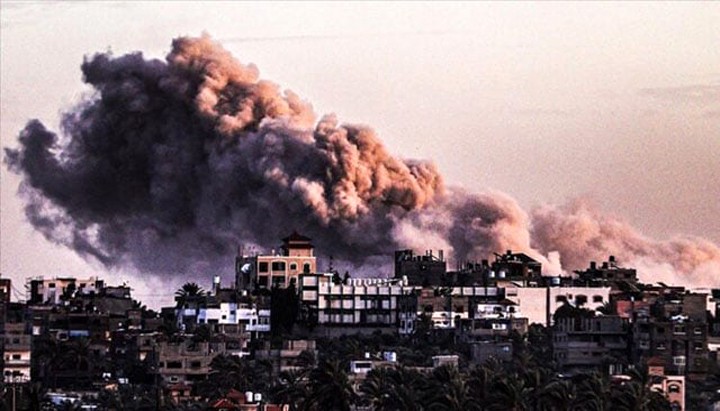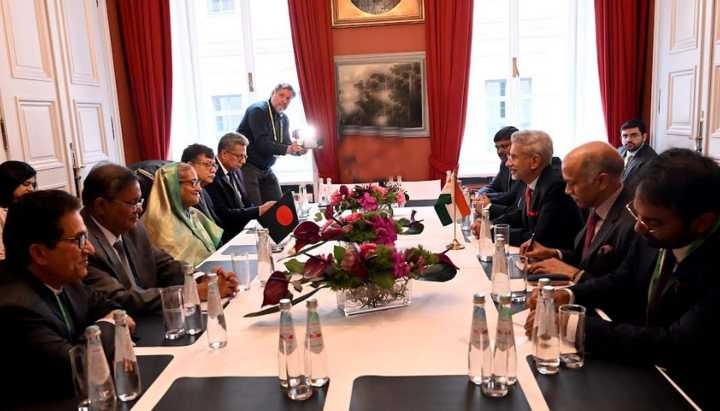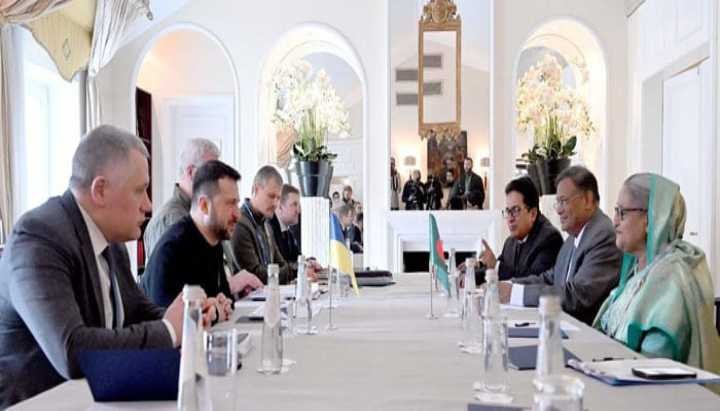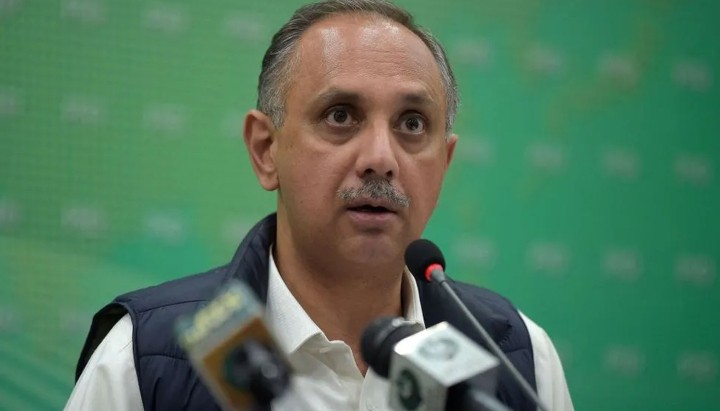Prime
Minister Sheikh Hasina today gave utmost importance on dialogue to resolve
crises and disputes, urging the world community to stop arms race, war and
sanctions for building a peaceful world.
"My
urge to the conscience of the world community- stop the arms race, war, and
sanctions, ensure food and security of the children; build peace," she
said.
The
Premier made this call while delivering her speech at the 77th Session of the
United Nations General Assembly (UNGA) here in the UN headquarters.
"We
believe that antagonism like war or economic sanctions, counter-sanctions can
never bring good to any nation," she said, adding "Dialogue is the
best way to resolve crises and disputes."
She
continued that "We believe without addressing root causes of conflict, we
cannot sustain peace."
Wanting to
see a peaceful world with enhanced cooperation and solidarity, shared
prosperity and collective actions, Sheikh Hasina said "We share one
planet, and we owe it to our future generations to leave it in a better
shape."
She went
on saying that "We want the end of the Ukraine-Russia conflict."
She noted
that in punishing one country with sanctions, counter-sanctions, the entire
world including women and children are being punished.
"Its
impact is not limited to a country, rather puts the lives and livelihoods of
the people in greater risk, infringe their human rights; people are deprived of
food, shelter, healthcare and education," she said, adding, "Children
suffer the most in particular. Their future is lost in darkness."
The 77th
session of the UNGA is taking place from September 13 to 27 at the UN
Headquarters in New York, in the first in-person format since the outbreak of
the COVID-19 pandemic with heads of states and governments from 193 Member
States.
The UNGA session is taking place at a time when overlapping crises unfold
around the world with food insecurity is looming, humanitarian needs are
deepening, climate goals remain largely unmet, inequality is worsening.
The world leaders will exchange statements in-person in the General Assembly
Hall, on the theme "A watershed moment: transformative solutions to
interlocking challenges" to consider and debate how they can collectively
solve the shared problems of present time-and create a more sustainable, more
just future for all.
Alongside
the Russia-Ukraine war, the peace and stability, climate change, food
insecurity, Covid-19 pandemic, Palestine and migration issues among others
concerning the global as well as Bangladesh perspectives were prominently
featured in Sheikh Hasina's speech in the 77th session of the UNGA.
"Growing
food insecurity, energy and economic crisis are affecting us all," she
said.
She
observed that countries that are already in vulnerable situations needing
support to achieve the Sustainable Development Goals (SDGs) will now face even
more challenges to achieve the SDGs.
"Today
we've reached a critical time, when mutual solidarity must be shown more than
at any time in the past. We need to prove that in times of crisis, the UN is
the cornerstone of the multilateral system," she said, adding
"Therefore, in order to gain the trust and confidence of the people at all
levels, the UN must lead from the front and work to fulfill the expectations of
all."
In this
context, she mentioned about the Global Crisis Response Group (GCRC) and said
"as a champion of this group, I am working with other world leaders to
determine a global solution commensurate with the gravity and depth of the
current situation".
The Prime
Minister said that Bangladesh is fully committed to complete disarmament,
including the non-proliferation of nuclear weapons and that is why it has
ratified the landmark Treaty on the Prohibition of Nuclear Weapons in 2019.
"We've consistently implemented our commitment to peacekeeping operations",
she added.
As a
reflection of our peace-centric foreign policy, she said Bangladesh has
consistently demonstrated its commitment to UN peacekeeping operations as the
leading troops and police contributing country, presently being the largest.
They (peacekeepers)
help maintain peace, support capacity building of national and local
institutions, protect the civilians from harm, empower women and other
vulnerable communities and build a sustainable society, she said, adding that
while performing their duties, many of them died.
The
Bangladesh Premier said as the current Chair of the UN Peacebuilding
Commission, her country is doing their part by creating a platform for
multi-stakeholder engagements in support of the conflict affected countries.
"We
are committed to continue our efforts in strengthening the women, peace and
security (WPS) agenda," she said.
Mentioning
that Bangladesh has adopted a "zero tolerance" policy on terrorism
and violent extremism in its land, she said "We do not allow our territory
to be used by any party to incite or cause terrorist acts or harm to
others."
She also
called upon the member states to work together for the conclusion of an
internationally binding instrument to tackle cyber-crimes and cyber-violence.
Mentioning
the brutal and pathetic tragedy of her life on 15 August 1975 when her father
Bangabandhu Sheikh Mujibur Rahman along with most of family members were
killed, she said "So, myself as a sufferer, I can rightly realize the pain
and agony that people endure due to the horrors of war, killings, coups and
conflicts."
She said
"Therefore, I don't want war, I want peace, I want welfare for humankind.
I want economic development for people. I want to ensure a peaceful world,
developed and prosperous life for future generations."
She
continued "My earnest appeal to you, 'stop war, stop arms race'. May the
values of humanity be upheld."
"Let
us join our hands together and build a better future leaving no one
behind," she added.
Rohingya
Crisis:
Prime
Minister Sheikh Hasina called upon the United Nations and the global leaders to
take effective measures for sustainable repatriation of the Rohingyas, warning
the global community that if the problem persists further it may affect
stability and security beyond its region.
"The
ongoing political turmoil and armed conflicts in the country has made the
repatriation of the displaced Rohingyas more difficult. I hope the United
Nations will play an effective role in this regard," she said.
The
premier told the gathering of world leaders that last month Bangladesh has
witnessed the five years of the 2017 mass exodus of the Rohingyas to Bangladesh
from their home country.
"Not
a single Rohingya was repatriated to their ancestral home Myanmar, despite our
bilateral engagements with Myanmar, discussions with partners in trilateral format
and engagements with the UN and other partners to assist Myanmar to create
necessary conditions for safe and dignified repatriation," she said with
great concern.
To ensure
a permanent solution to the Rohingya issue, she said "I shall now seek
your attention to the forcibly displaced Rohingya peoples from Myanmar."
The Prime
Minister said the prolonged presence of the Rohingyas in Bangladesh has caused
serious ramifications on the economy, environment, security, and
socio-political stability in Bangladesh.
"Uncertainty
over repatriation has led to widespread frustration. Cross border organized
crimes including human and drug trafficking are on the rise. This situation can
potentially fuel radicalisation. If the problem persists further, it may affect
the security and stability of the entire region, and beyond," she warned.
Climate
Change:
The Prime
Minister said that the impact of climate change is one of the biggest threats
for humankind. "In the past, we have seen a vicious cycle of promises
being made and broken. We must now change this course."
In
Bangladesh, she said, the government has led to many transformative measures to
tackle perilous impacts of climate change consistent with implementing the
Paris Agreement and achieving the Sustainable Development Goals.
During
Bangladesh's Presidency of Climate Vulnerable Forum, Sheikh Hasina said that
they've launched "Mujib Climate Prosperity Plan", which aims to put
Bangladesh on a sustainable trajectory from "one of vulnerability to
resilience to climate prosperity".
She said
"Our national plans and policies on climate change and natural disaster
are gender responsive and take into account the critical role of women in
adaptation and mitigation."
She added
that "We are ready to support other vulnerable countries to develop their
own prosperity plans. I call on world leaders to promote inclusive climate
action."
Covid-19
Pandemic:
Since the
beginning of the pandemic in Bangladesh, the Prime Ministe said that her
government has taken strategies to contain this crisis mainly focusing on three
aspects.
Firstly,
the government expanded national health care to prevent the transmission and
spread of the infection, she said,
Secondly,
she said, they have provided strategic fiscal stimulus to safeguard the
country's economy.
And
finally, the government has secured people's livelihood, she added.
She said
that these initiatives have helped reduce the number of deaths due to pandemic
as well as reduce public suffering.
Mentioning
that vaccination is the key to safe transition from the pandemic, Sheikh Hasina
thanked the World Health Organization and its COVAX system and partner
countries for providing this vaccine.
As of
August 2022, 100 percent of the eligible population of Bangladesh have been
vaccinated, she added.
The
greatest lesson, learnt from the Covid-19 pandemic is that "Until we all
are safe, no one is safe," she said, adding "We must use the
hard-earned lessons to stimulate critical and much needed reforms of our
institutions, including of the United Nations, to better prepare for such
calamities in the future."
The
Premier said that Bangladesh is interested in looking for transformative
solutions to poverty alleviation, mitigating climate change effects, preventing
conflicts and finance, energy and fuel crises that the world is grappling with
now.
"However,
we need to understand the fact that socio-economic development cannot be
achieved without ensuring peace and stability," she added.


